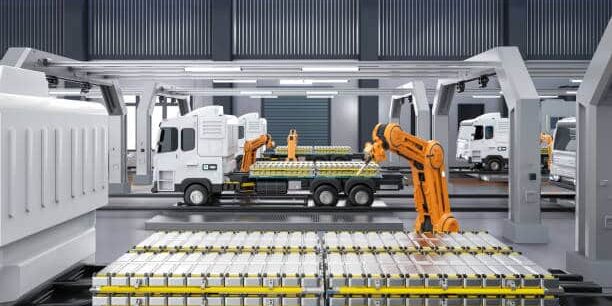In a groundbreaking initiative, the U.S. Department of Energy (DOE) has unveiled an investment exceeding $3 billion in grants and loans, designed to significantly bolster the domestic production of advanced batteries and related materials. This ambitious program will support 25 projects across 14 states, creating over 8,000 construction jobs and 4,000 operational positions.
Batteries are pivotal in fortifying the U.S. energy grid, powering homes and businesses, and facilitating the transition to electric vehicles (EVs). The funding, managed by the DOE’s Office of Manufacturing and Energy Supply Chains, focuses on retrofitting, expanding, and constructing new facilities for battery-grade processed minerals, components, manufacturing, and recycling.
This initiative is a testament to the private sector’s commitment, with approximately $120 billion invested in the EV supply chain in recent years. The Battery Materials Processing and Battery Manufacturing and Recycling Program is set to catalyze an additional $16 billion in investments for battery-related manufacturing and recycling, underscoring the vital role of the supply chain in this transformative movement.
The projects will feature new or expanded commercial-scale facilities that extract and recycle essential minerals like lithium, graphite, and manganese. Furthermore, they will manufacture critical battery components, including electrolyte salts, solid-state electrolytes, and materials for cathodes and anodes.
In a strategic effort to establish a comprehensive battery supply chain independent of international competitors, this initiative emphasizes the importance of onshoring and friend-shoring practices. The administration is dedicated to strengthening the U.S. manufacturing sector while generating high-quality union jobs nationwide.
Aligning with ongoing support for labor unions, over half of the selected projects have committed to project labor agreements, with ten securing agreements with labor organizations or neutrality pledges. Impressively, around 90% of the projects are located in or near disadvantaged communities, ensuring that economic benefits are equitably distributed.
This substantial investment not only aims to enhance the domestic battery supply chain but also seeks to foster positive economic and environmental impacts, reinforcing the commitment to sustainable practices in the supply chain.
#ICTTMNews #BreakingNews #SupplyChainNews #BatteryManufacturing #JobCreation #Sustainability #NewsUpdate







